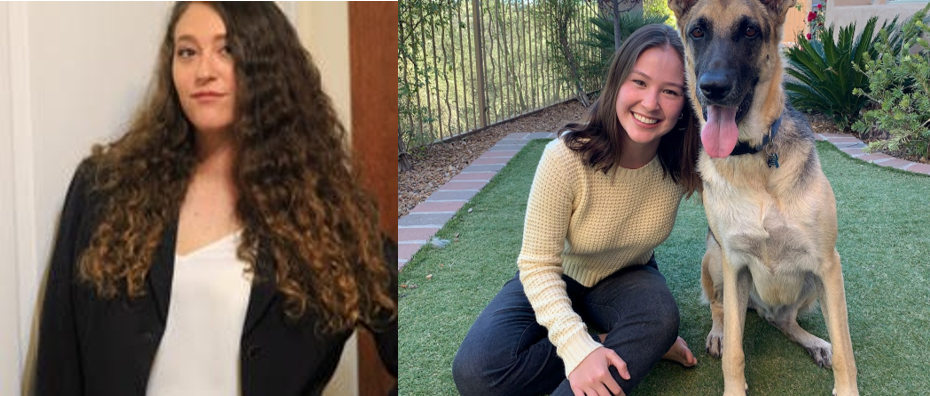The Drought Learning Network (DLN) partners closely with the Collaborative Conservation and Adaptation Strategy Toolbox (CCAST) to elevate drought adaptation examples and lessons learned through case studies. This partnership is committed to engaging and supporting young professionals through paid internships that equip students and recent graduates with science writing and communication skills, exposure to collaborative decision-making, and access to an extensive suite of professionals and opportunities in the field. Thanks to funding from the National Drought Mitigation Center, the DLN’s Sharing Management Practices team welcomes two interns, Jackie Alessi and Erin Connolly, for the next year! Jackie and Erin join a cohort of six CCAST intern authors who will write case studies on work completed to manage, conserve, restore, or conduct actionable science on natural resources. Jackie and Erin’s case studies will focus specifically on drought and climate adaptations. We’d like to introduce you to them:

Jackie Alessi is a senior at Oregon State University, majoring in the natural resources management, with a focus on land analysis. She is interested in the effects of climate change on the Colorado River Basin, wildfire patterns throughout the Colorado Front Range, and the threat of invasive species, such as bark beetles, within the forests of the Colorado Rocky Mountains. She’s excited to work with CCAST because her values for wildlife and our environment have been focused on university work until now. She looks forward to witnessing how people work together to further wildlife conservation and climate adaptation agendas. Jackie is eager to learn about the different techniques and procedures highlighted in case studies, as well as how meetings are structured and decisions are made within collaborative groups.
Erin Connolly graduated from the University of Cambridge just under a year ago where she studied biology and environmental geography. Erin’s research experience is primarily in wildlife conservation, specifically in facilitating human-wildlife coexistence. Having grown up in the desert, Erin is particularly excited to learn more about the management aspect of natural resource conservation, especially in drought-prone areas. Erin enjoys the process of scientific writing and looks forward to expanding research horizons beyond wildlife and into climate adaptation. She is excited to learn about how CCAST and other organizations build relationships and communicate with a diverse range of stakeholders.

